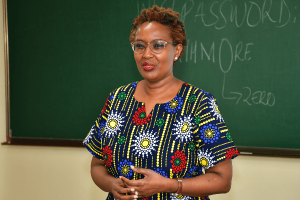Guest Lecture: A Treat on Treaties with the Batman of International Law

On 4 February 2021, the third year Strathmore Law School Students had the opportunity to interact with Professor Panos Merkouris. Prof. Merkouris is a Professor of Public International Law at the University of Groningen, Netherlands where he is the chair on Interpretation and International Dispute Settlement. He specializes in Interpretation, Law of Treaties, Sources of International Law, and Dispute Settlement. He has also authored numerous articles, books and blogs, including a blog in 2014 on Articles 31 & 32 of the Vienna Convention on the Law of Treaties as interpreted in the case of R.M.T v The United Kingdom in which he uses an analogy of Batman’s utility belt. It is no surprise that he has gained the title of the Batman of International Law.
Hence, it was only fitting that the topics pertaining to the interpretation, suspension and termination of treaties are covered by the Batman of International Law himself. But little did we know the treat(y) we were about to encounter.
The interpretation enigma
In true Batman fashion, the class started off with a bang. The explosion, however, was experienced within our minds as we discovered that any statement is subject to interpretation. Prof Merkouris elaborately described how the saying ‘in claris non fit interpretatio’ meaning ‘in clear things no interpretation is made’ is more fallacious than one may think. This was expertly highlighted through the use of several examples given by the class, of which one was ‘water boils at 100 degrees’. To a layman, such a statement may seem obvious and of no interpretative need. But to Professor Merkouris, the gaps were glaring such as the nature of the water- pure or impure, height of the water above sea level and use of measurement each posed different issues in the field of interpretation and, thereafter, distorted the statement, deeming it incorrect. This was further elaborated in mala fide (bad faith) Greek and Roman interpretations wherein a ‘truce to last some days’ between Cleomenes and Argos was circumvented when the one attacked at night.
Having started the class off on a high note, the discussion thereafter turned to treaties as we examined the role of Articles 31 and Article 32 of the Vienna Convention on the Law of Treaties (VCLT) in their application to treaty interpretation. These Articles were especially interesting due to the scrutiny and interpretation that they themselves have faced- again, showing how even interpretation clauses are not spared from the interpretation enigma.
The most interesting themes covered in this section were the elements of time- in consideration of whether the interpretation of a treaty should be linear or cyclical- and the hierarchy between Articles 31 and Article 32- of which the latter addresses supplementary means of interpretation. This was examined within the case of Land, Island and Maritime Frontier Dispute (El Salvador/Honduras: Nicaragua intervening) [1992] ICJ Rep 351 by Judge Torres-Bernandez in his dissenting opinion on paragraph 191. For any interested minds reading this article, I leave that to you to discover and understand as Prof. Merkouris asked us to do through the use of a Treasure Hunt.
Amendment, modification and revision of treaties
After the exciting Treasure Hunt on interpretation, Prof. Panos took us through the differences between the amendment, modification and revision of treaties. He was quick to explain that these are terms whose meanings are often mistaken due to how closely related they are. Prof. Panos clarified that both amendment and modification of treaties share a common aim- which is the revision of treaties. However, they are different activities accomplished in different ways, in that amendment pertains to the formal alteration of treaty provisions affecting all the parties to the treaty while modification involves variations of certain treaty terms that are solely between particular parties.
Suspension and termination
Having completed the short discussion on amendment and modification of treaties, it was time to cinch all other subtopics by addressing the suspension and termination of treaties. The conversation on this mainly focused on the ways in which the above concepts can be achieved. On this, the focal basis pertained to the need for parties’ consent when seeking to terminate or suspend the operations of the treaty. This crowned the entire discussion on the law of treaties and how it is applied.
To sum it up, the whole lecture by Prof. Panos Merkouris was a delightfully enlightening and wholly riveting experience. We would like to express our deepest gratitude to our lecturer, Allan Mukuki, for arranging this lecture for us and exposing us to the world beyond our own four walls.
This article was written by Ryan Mwaniki, Tasneem Pirbhai and Juliet Mwangi.



